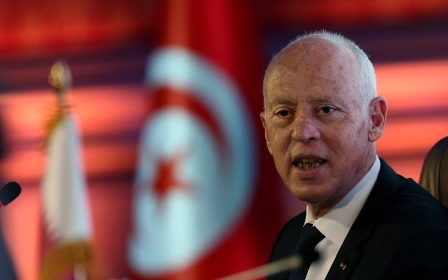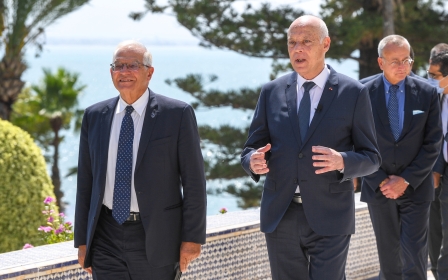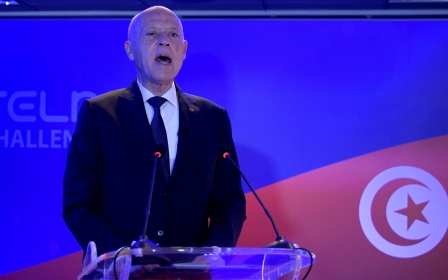Tunisia: Politicians and activists decry president's plan to 'violate' constitution
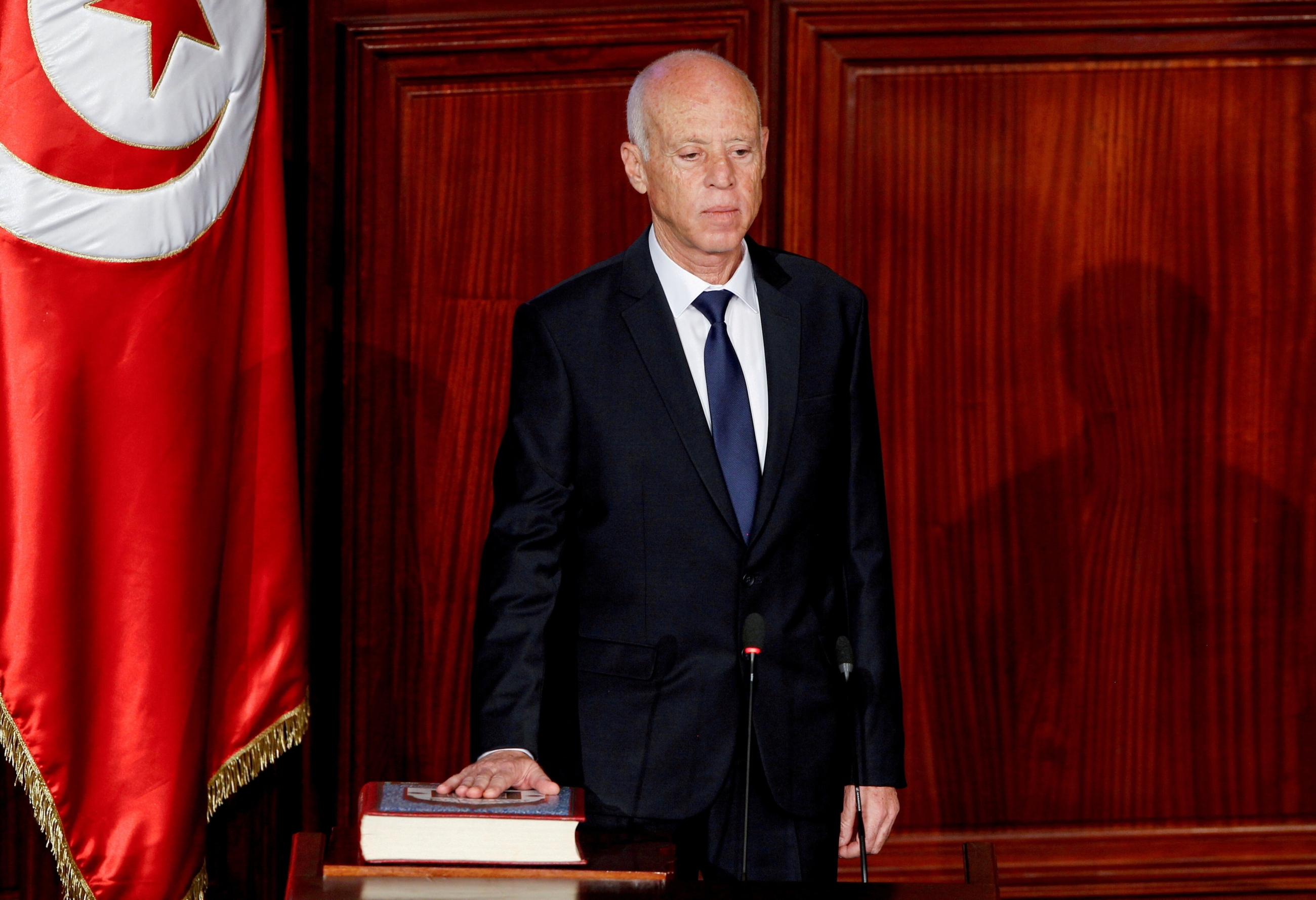
More than 90 political and civil society activists, including two prominent politicians, have rejected "any attempt to circumvent or violate" the Tunisian constitution, a day after President Kais Saied said the charter must be amended.
According to a statement published by Tunisian radio station Mosaique FM on Sunday, the 90 figures, who include Yamina Zoghlami from the Ennadha party, and Osama Khelifi, the chairman of the Heart of Tunisia party in parliament, affirmed their "commitment to the 2014 constitution".
"We express our commitment to the 2014 constitution which was the culmination of the course of the Tunisian revolution and the embodiment of the aspirations of Tunisian women and men for freedom, dignity, democracy, citizenship, and the rule of law," the signatories said.
On Saturday, Saied indicated that he was preparing to change the constitution but would only do so using existing constitutional means.
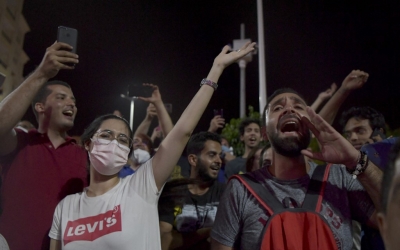
The announcement came seven weeks after the president seized governing powers and suspended parliament in moves his rivals have called a coup.
In a televised address, Saied claimed that Tunisians had "rejected the constitution," adding that such charters were "not eternal" and that "we can introduce amendments to the text".
His comments, which confirmed earlier media speculation about his plans, were dismissed by the Ennahda party, the largest bloc in parliament.
The party in a statement expressed "its categorical rejection of the attempts of some parties that are hostile to the democratic process... to push for choices that violate the rules of the constitution".
Ennahda added that it would oppose "an intended suspension of the application of the constitution and a change to the political system, possibly through a referendum".
According to Sunday's statement, the 90 figures called on Tunisians to "pool all efforts against the coup d'état, promptly return to the democratic process" and to put an end to the exceptional measures, including the freezing of parliament's activities.
Growing anxiety
Anxiety about the direction of events in Tunisia has been growing, both internally and among western democracies that have supported Tunisia's public finances, since Saied's 25 July announcement that he was sacking the prime minister and suspending parliament.
The former constitutional law professor justified those moves by citing emergency measures in the constitution that his critics and many legal scholars said did not support his intervention.
In May, Middle East Eye reported on a leaked document that came from the office of Saied's chief of staff, Nadia Akacha, proposing the establishment of a "constitutional dictatorship" as a means of dealing with the country's mounting problems.
Though Saied has indefinitely extended the measures he initially said that this would last for only 30 days.
He has yet to appoint a new government or make any clear declaration of his long-term intentions, as Tunisia struggles to confront a rolling economic crisis.
Saied did say on Saturday that he was close to naming a new government.
Saied's intervention drew widespread domestic support after years of political paralysis. But it has thrust Tunisia into a fresh crisis a decade after it threw off autocracy and embraced democracy in the revolution that triggered a series of uprisings across the region.
Political leaders have complained about the constitution since it was agreed in 2014, calling for it to be changed to either a more directly presidential or a more directly parliamentary system.
Article 144 of the constitution says an amendment to the document can only be put to a referendum if it has already been approved by two-thirds of the parliament, an institution Saied last month called "a danger to the state".
The current parliament was elected in 2019, a week after Saied was elected.
He does not have the power to dissolve it and call new elections, but some of the parties in the deeply fragmented chamber have indicated they could do so themselves.
Middle East Eye delivers independent and unrivalled coverage and analysis of the Middle East, North Africa and beyond. To learn more about republishing this content and the associated fees, please fill out this form. More about MEE can be found here.


